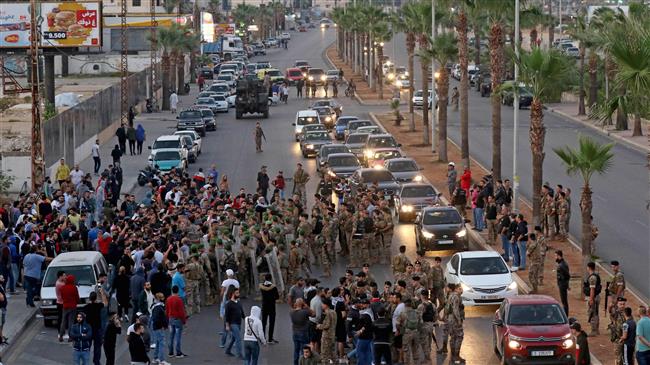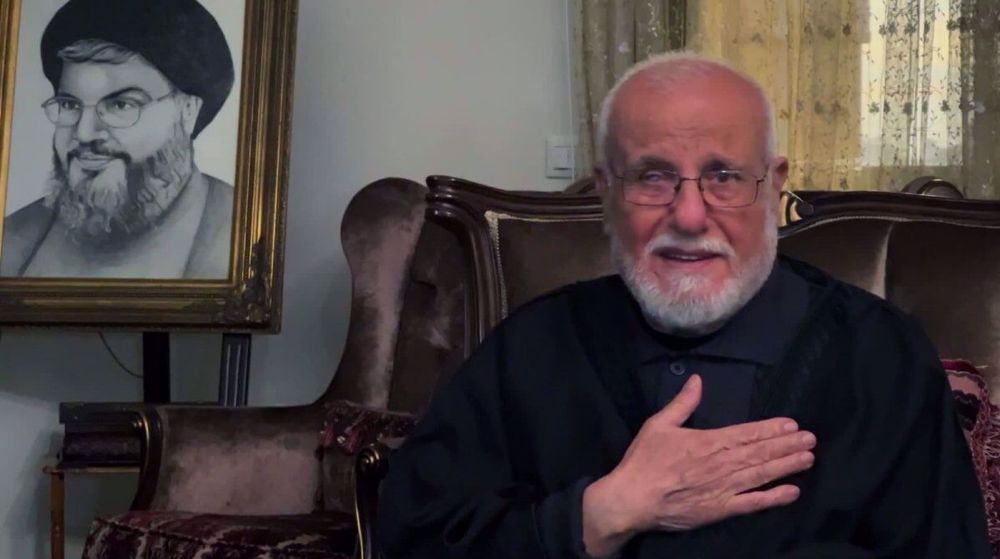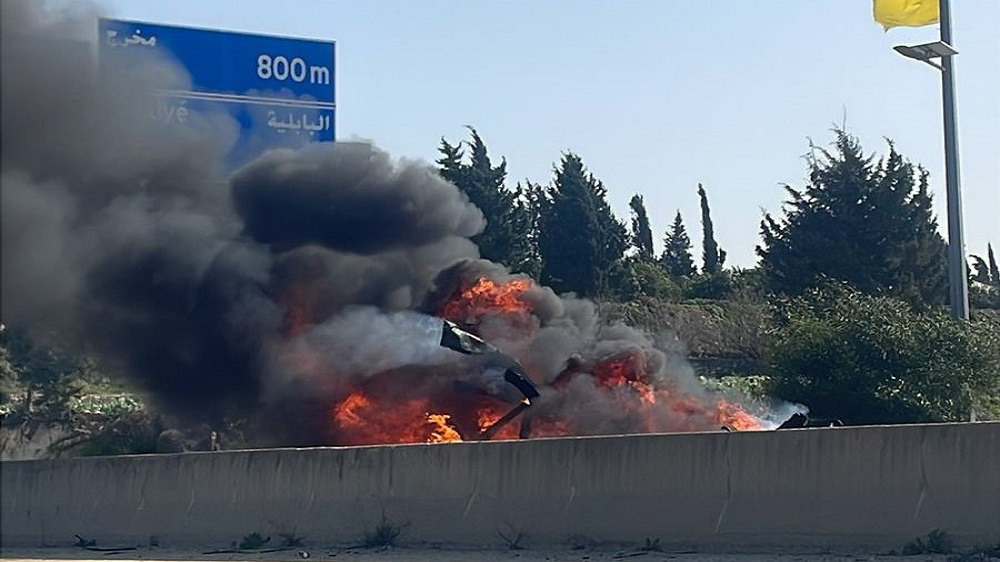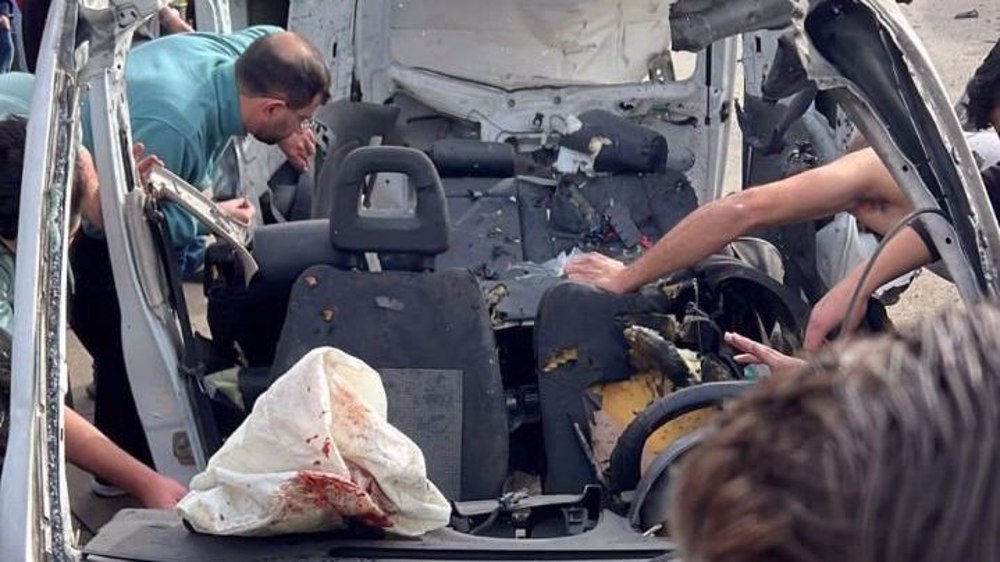Protesters block major roads as Lebanon reels under unrest
Protesters have blockaded major roads in Lebanon, including the main north-south highway, defying pleas from top leaders who have warned of a new civil war in the country.
Hundreds of angle-parked vehicles shut the roads on Monday, a day after a poster calling on motorists to block roads with their cars circulated on social media.
Banks remained closed. They have been shut for nine working days, citing safety concerns. Bankers and analysts also cited wide fears depositors will try to take out their savings when banks reopen.
Since October 17, Lebanese protesters in Beirut and other cities have been taking to the streets to express their strong discontent with the government’s failure to find solutions to the country’s economic crisis.
The unprecedented cross-sectarian mobilization was triggered initially by the planned taxes on gasoline, tobacco and online phone calls such as through WhatsApp.
The leaderless protest rallies have been noteworthy for their territorial reach and the absence of political or sectarian banners.
On October 21, embattled Prime Minister Saad Hariri announced a package of economic reforms which aims to revive an almost collapsed economy, but the move has failed to stop the protests.
On Thursday, President Michel Aoun, for his part, expressed readiness for dialogue with anti-graft protesters.
However, there have been warnings that foreign elements and certain political parties are seeking to “exploit” the protests.
“Some protests have been financed by embassies and suspicious sides. Certain elements are seeking to stir political tensions in Lebanon in a bid to create political vacuum in the country," Hezbollah chief Sayyed Hassan Nasrallah said on Friday.
“We have information that an anti-resistance scheme is being prepared for Lebanon. Several sides are exploiting popular protests to settle their account with Hezbollah and implement foreign agendas,” he said.
Growth in Lebanon has plummeted in the wake of endless political deadlocks and an economic crisis in recent years. Unemployment stands at more than 20 percent, according to official figures.
On Monday, the International Monetary Fund said Lebanon should urgently implement reforms to restore confidence and economic stability.
Lebanon is saddled with one of the world's highest levels of government debt as a share of economic output. The IMF has forecast a fiscal deficit of 9.8% of GDP this year and 11.5% next year.
US sanctions have deepened the country's economic crisis. Early this month, the Trump administration intensified sanctions on Hezbollah and institutions linked to it to unprecedented levels.
Hezbollah enjoys wide support among the Lebanese and runs institutions such as hospitals, clinics and schools, which means the sanctions target citizens at large.
Lebanon is also under pressure from Persian Gulf Arab states, which have withheld their contributions to the country in order to pressure the government in Beirut to meet their demands.
In November 2017, Hariri warned Lebanon was at risk of Persian Gulf Arab sanctions as he announced his resignation in Riyadh which reportedly coerced him into taking the unusual decision.
With the crisis currently deadlocked, Samir Geagea is one of first Lebanese figures to call for Hariri to resign. The leader of the pro-West Lebanese Forces parliamentary bloc ordered his party’s four ministers in Hariri’s cabinet to submit their resignations last week.
Leader of Lebanon's Progressive Socialist Party Walid Jumblatt is also another prominent political leader to call for new elections.
VIDEO | Press TV's news headlines
VIDEO | Merowe Dam targeted as youth mobilize to protect Sudan’s Northern State
VIDEO | India faces scrutiny over minority worship attacks
VIDEO | UN special rapporteur says third states have enabled Israel’s crimes in Gaza
Son of former Libyan ruler Gaddafi killed in ‘home attack’: Aides
Iran finalizes planning for talks with US; venue to be announced: Foreign Ministry
VIDEO | The official opening of Rafah Crossing
VIDEO | Iran prepared for equitable dialogue












 This makes it easy to access the Press TV website
This makes it easy to access the Press TV website